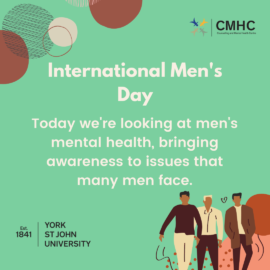A therapist’s reflections on relationships, the counselling relationship, building successful relationships long term, and our relationship with ourselves.
Jasmine, one of our voluntary counsellors, has written a blog sharing a few of her reflections on relationships.
A relationship is the bond of affection which connects us to our parents, family, our friends, and partner. This can be a source of great strength in testing times; for example, when facing transitions and changes. At these times, our social connections with others can provide solace, warmth, and consistency. Yet, at other times, the desire for a close relationship can be the source of angst as we strive to find the right life partner (and feel that we will never, ever find them), or when we find ourselves in conflict with a partner. Our relationships with others determine how we think of ourselves, our identity, provide meaning and purpose, and help us make sense of our world.
As a relational counsellor, I see how we can subconsciously re-enact unhelpful, as well as helpful patterns, absorbed from how we were parented as children, or from school experiences, or from previous or current sexual relationships. The way we interpret these experiences can lead to us developing a view of ourselves which can impact on our self -esteem. For example, an experience of relentless bullying could lead to us believing we are flawed, or lacking something, or different from others, which could impact our levels of self-belief and confidence. Counselling has an important role in allowing those who may have been damaged by hurtful relationships to heal. How does it work? Broadly, the counsellor embodies empathy, a non-judgemental space, and congruence or authenticity to model a healing relationship for the client so that the client can feel safe in talking through difficult issues, process their emotions, find their own solutions, and realise personal growth (Rogers, 1957). The experience of being held in a therapeutic relationship cannot be underestimated and often leads to successful therapeutic outcomes (Orlinsky, et al., 1994).
Over time, I have reflected on the kinds of things which might empower clients to build successful relationships long term. I would just like to share a few observations.
First, knowing one’s values and aligning actions and thoughts with these values can put people in a stronger position in ascertaining if a potential partner shares their values. Ultimately, knowing one’s values and living up to them gives you integrity, which helps build trust. Many people place kindness as their top priority in a relationship context and want to be able show generosity and receive benevolence from a partner.
Secondly, sharing the same goals as a couple can be life affirming, especially around significant decisions such as whether to buy a house, whether to have children, whether to move, or go on holiday. The goals you have as a couple need to allow scope for each individual person to develop their own personal goals; for example, to study, to become fitter, to go for a promotion.
Thirdly, more successful partnerships seem to be able to accommodate both crises and positive changes whilst still being present and available for the other person. For instance, a crisis could encompass the death of a parent, unemployment; and a positive change could involve having a baby, retraining to enter a different field of employment.
Fourth, each partner within the relationship needs to be open to working on their own growth and personal development rather than having a rather defensive attitude of, “This is who I am. Take it or leave it.” Instead, this is about knowing oneself and being prepared to address one’s personal flaws and taking responsibility.
Fifth, aligned to this is developing the skill of repairing things after an argument and requires effective communication and respect for the other person. This could involve developing the habit of deep listening and receptivity to learning about the perspective of your partner, rather than jumping in with one’s own point. Perhaps this also entails a desire to seek harmony as a unit rather than wanting to prove that you as an individual are always right?
Sixth, most people are looking for a partner who can accept them unconditionally and provide love consistently, rather than withholding it or indulging in power games or manipulation. Rather than seeing differences in a partnership as a threat, these differences can be celebrated as marking of the uniqueness of someone’s identity. All these six qualities require considerable self-knowledge and emotional maturity.
Ultimately, this brings me neatly to my final point that as well as wanting to have strong relationships with our significant other, it is our relationship with ourselves which is central to the process of having a strong relationship with someone else. We can build self-esteem through a mixture of reflection, seeing our strengths, learning, having therapy, giving ourselves challenges, offering service to others, developing a spirit of self-compassion and forgiveness balanced by having the courage to see and address our own faults. Knowing that we are on the journey of becoming all we can be, and accepting that we have not arrived yet, places us in a strong position in that we have the power to change and grow.
~
Author: Jasmine Cortazzi – https://www.therapywithjasmine.org/
~
Bibliography
Rogers, C. R. (1957) ‘The necessary and sufficient conditions of therapeutic personality change’, Journal of Consulting Psychology, 21(2), pp. 95-103.
Orlinsky, D., Grawe, K. and Parks, B. (1994) ‘Process and outcome in psychotherapy’, in Bergin, A. and S.Garfield, A. (eds.) Handbook of psychotherapy and behaviour change. 4th ed. New York: John Wiley & Sons, pp. p270-379.



